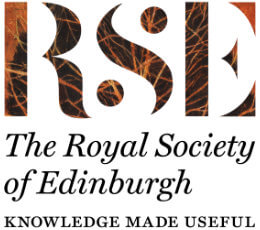Link to the episode:
Closed captioned video:
Before this episode was published, Jean Thompson passed away. We dedicate this episode to her memory.
Show Notes
On episode 4, we welcome Jane Bentley, who is also senior Atlantic Fellow for Equity in Global Brain Health; Sam Thompson, chairperson of the Musical Memories Choir in Hamilton, and Dementia Inclusive Singing Network consultant, Stephen Deazley, who also runs the Love Music community choir in Edinburgh.
The show is presented by Brianna Robertson-Kirkland, who is Principal Investigator of the Network.
The show is produced and edited by Sophie Boyd.
Below, we have provided links to resources mentioned on the episode.
More details about the Network
Website: https://portal.rcs.ac.uk/scotland-singing-for-health-network/
Get in touch: singing-for-health@rcs.ac.uk
Twitter: @ScotSingHealth
Singing Groups and Organisations supporting Singing for Health mentioned in the episode:
Dementia Inclusive Singing Network: https://singing.luminatescotland.org/
Musical Memories, Hamilton: http://www.musical-memories-choir.co.uk/ / Facebook: https://www.facebook.com/musicalmemorieshamilton
Alzheimer’s Scotland: https://www.alzscot.org/
Music for Dementia: https://musicfordementia.org.uk/
Age Scotland: https://www.ageuk.org.uk/scotland/
Scottish Opera Memory Spinners: https://www.scottishopera.org.uk/join-in/memory-spinners/
Research
Alexia Baudouin, Sandrine Vanneste & Michel Isingrini (2004) Age-Related Cognitive Slowing: The Role of Spontaneous Tempo and Processing Speed, Experimental Aging Research, 30:3, 225-239, DOI: 10.1080/03610730490447831
Alexia Baudouin, Sandrine Vanneste, Michel Isingrini, and Viviane Pouthas, (2006) Differential involvement of internal clock and working memory in the production and reproduction of duration: A study on older adults, Acta Psychologica, 121:3, 285-296, DOI: https://doi.org/10.1016/j.actpsy.2005.07.004.
Amee Baird & William Forde Thompson (2019) When music compensates language: a case study of severe aphasia in dementia and the use of music by a spousal caregiver, Aphasiology, 33:4, 449-465, DOI: 10.1080/02687038.2018.1471657
Becky Dowson, Justine Schneider, Boliang Guo, Philip M. Bath, Orii McDermott, Lee J. Haywood & Martin Orrell (2021), Pilot Randomised Evaluation of Singing in Dementia (PRESIDE): protocol for a two-arm, parallel-group randomised controlled feasibility study with waiting-list control, Pilot and Feasibility Studies, 7:15, https://pilotfeasibilitystudies.biomedcentral.com/articles/10.1186/s40814-020-00759-y.
Megan E. Graham (2019) Re-socialising sound: investigating sound, selfhood and intersubjectivity among people living with dementia in long-term care, Sound Studies, 5:2, 175-190, DOI: 10.1080/20551940.2018.1551051
Karen Gold (2014) ‘But does it do any good? Measuring the impact of music therapy on people with advanced dementia: (Innovative practice)’, Dementia, 13(2), pp. 258–264. doi: 10.1177/1471301213494512.
Sara Eldirdiry Osman, Victoria Tischler, Justine Schneider (2016) ‘‘Singing for the Brain’: A qualitative study exploring the health and well-being benefits of singing for people with dementia and their carers’, Dementia, 15:6, 1326–1339. doi: 10.1177/1471301214556291.
Teppo SärkämöMari Tervaniemi, Sari Laitinen, Ava Numminen, Merja Kurki, PhD, MA, Julene K. Johnson, Pekka Rantanen (2014) Cognitive, Emotional, and Social Benefits of Regular Musical Activities in Early Dementia: Randomized Controlled Study, The Gerontologist, 54:4, 634–650, https://doi.org/10.1093/geront/gnt100
Music featured in the episode:
Intro music: Free Over the Fields (ID 1622) by Lobo Loco (licensed under a Attribution-NonCommercial-ShareAlike 4.0 International License)
Outro music: Famba Naye sung by the Dennistoun Cheyne Gang, recorded by Sophie Boyd. Famba Naye is a folk song that comes from Zimbabwe and is sung in the Shona language. “Famba Naye” means “Stay Well, Go Well” in Shona. As the song is about parting, it is a popular song to be sung at funerals, though it can also be sung in other contexts.



